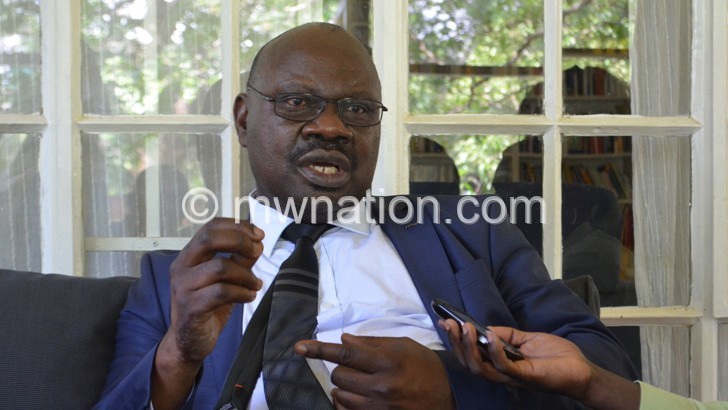World Bank denies water project link to K60bn aid
The World Bank has denied using controversies surrounding the Salima-Lilongwe Water Project to deny the Malawi Government its K60 billion pledge in budgetary support.
The bank was reacting to a presentation Secretary to the Treasury Ben Botolo made to the Budget and Finance Committee of Parliament last week that the Ministry of Finance, Economic Planning and Development was taken unawares when the World Bank board of directors failed to meet to discuss approval of the disbursement citing the water project.

He said the issues raised by the World Bank, originating from local development partners in the country, were not part of the set conditionalities for the budget support.
But the World Bank has dismissed the assertion, saying there is no direct link between the Development Policy Operation II (DPO2) and the multi-billion kwacha Salima-Lilongwe Water Project.
Instead, the bank said the Malawi Government is fully aware of the conditionalities put forward for DPO2 to proceed.
“World Bank staff and Government of Malawi [GoM] are continuing to discuss the timing of DPO2. World Bank is awaiting a view from GoM on the way forward. As far as the World Bank is concerned, there is no direct link between the DPO and the proposed Salima water project,” Loy Nabeta, communications officer for Africa External Communications and Partnerships (Afrec), responded in a questionnaire.
While not directly responding to allegations that some donors in the country were the ones who ratted on the Malawi Government to the World Bank board of executive directors, Nabeta said the board did have member States that had objected to DPO 2 proceeding.
She said: “Some executive directors have expressed concern about the momentum of policy development underlying DPO 2, based on conversations with their counterparts in Lilongwe. We are awaiting GoM advice on how they wish to proceed in light of those concerns.”
But in an interview yesterday, Botolo insisted that the World Bank was misled by local development partners with representation on the board.
He said apart from the conditionality on clarity on how the Salima-Lilongwe Water Project would pan out and be financed, the World Bank wanted to see reforms in the produce trader, Agricultural Development and Marketing Corporation (Admarc), bearing fruit.
Said Botolo: “The initial clause was about putting up a framework of the business model of Admarc and that has been done. There are discussions to take out social function of Admarc, that it should be a commercial entity with a strong balance sheet and that is being worked on.”
He affirmed that the World Bank was changing goalposts based on reports which it received from in-country.
“The conditionalities had to do with general reforms and whether they are taking shape. These include public finance management issues such as enactment of the public procurement law and appointment of the Auditor General among others,” Botolo said, adding he could not divulge further as discussions were still ongoing.
“As far as the World Bank is concerned, they are on our side for the money to be released. World Bank local office has not pulled out completely, the challenge is at the executive board level.”
With the non-disbursement of the K60 billion from the World Bank, the Treasury grants projection of K209 billion is likely to be affected.
To avoid going beyond the planned domestic borrowing for 2018/19, the Ministry of Finance, Economic Planning and Development will be forced to reduce recurrent expenditure and pend certain projects to the next financial year, Botolo told the committee.





